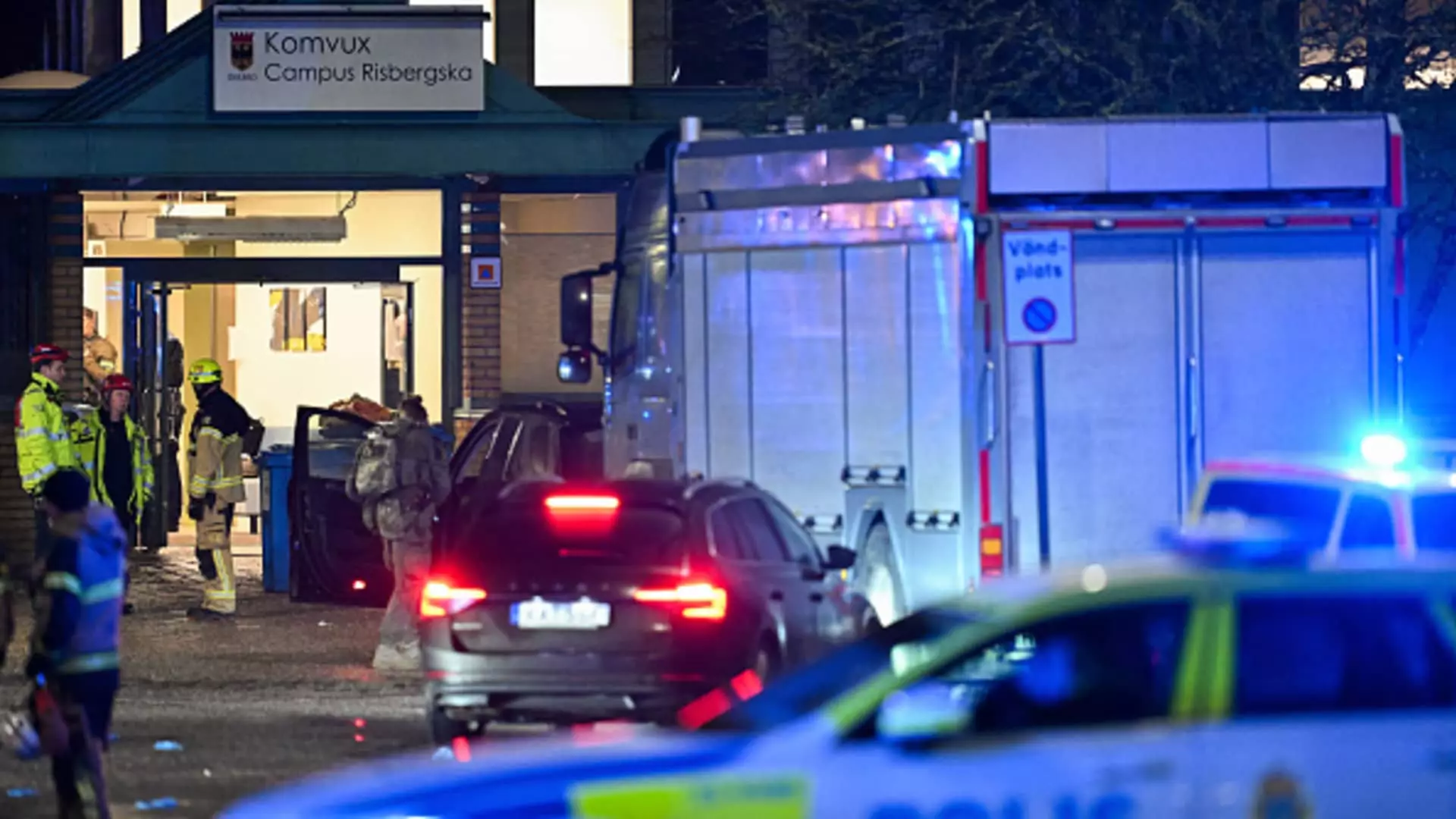Sweden, a country often celebrated for its peaceful and progressive society, has been thrust into a state of sorrow and introspection following a devastating shooting incident that claimed the lives of ten individuals at an adult education center. This tragic event has not only shocked the nation but also sparked a national conversation about the underlying issues of violence, gang crime, and gun culture in a country that traditionally prides itself on safety and social welfare. The primal chaos that unfolded in Orebro, located about 200 kilometers west of Stockholm, serves as a stark reminder that even in the most serene environments, the shadow of brutality can emerge unexpectedly.
On Tuesday, the Swedish police reported that ten lives were lost in the horrific shooting, which has been described as the deadliest attack in the country’s history. Prime Minister Ulf Kristersson expressed the collective sorrow felt across Sweden, calling the day “painful” and indicative of the dark challenges overshadowing the country. The incident unfolded at the Risbergska school for adults, an institution designed to aid those who have struggled to complete their formal education, emphasizing its role as a site of hope turned into a place of despair.
Local police chief Roberto Eid Forest disclosed that the presumed shooter was likely among the deceased and indicated that while investigations were ongoing, the motivation behind the attack remains unclear. The police are probing multiple angles, including murder and aggravated weapons offenses, yet suspicions of terrorism have not been substantiated at this point. Such uncertainty adds layers of fear and confusion to a community grappling with the magnitude of loss and violence.
Survivors of the atrocity have begun to share their harrowing experiences. Maria Pegado, a teacher at the school, recounted the moment chaos ensued, marking the transition from a routine teaching day to an emergency evacuation. Her swift actions to usher her students out of harm’s way highlight the instinctive bravery displayed by many in times of crisis. Yet, amidst the adrenaline, the stark reality of violence became apparent as injured individuals were dragged from the chaos—an image that will undoubtedly haunt those who witnessed it.
Condolences have flooded in from local and international leaders, underscoring a shared grief that transcends boundaries. King Carl XVI Gustaf and European Commission President Ursula von der Leyen both extended their sympathies, recognizing that tragedies of this magnitude resonate not just within the immediate community but throughout the global landscape. The collective mourning serves as a call for solidarity in times of unfathomable hardship.
While Sweden is viewed as a beacon of safety, the rise of gang violence has illuminated the darker undercurrents affecting its society. Despite its robust gun regulations, the prevalence of gang-related shootings and illegal firearms has surged in recent years, raising significant alarm. Previous attacks, although rare in school settings, demonstrate a troubling trend—particularly as many victims in Sweden’s adult education systems are immigrants striving for better education and opportunities.
The shocking nature of this incident—combined with the frequency of organized crime incidents—places pressing questions on the social fabric of Sweden. How can a nation combat the pervasive influence of gang culture that has permeated its cities? As the country reconciles with the events of that fateful day, the importance of examining social structures, mental health services, and community support systems becomes paramount.
As Sweden struggles to comprehend the enormity of the tragedy, it is imperative for leaders to engage in comprehensive discussions regarding violence prevention strategies. Collaborative efforts are needed to address gang-related issues, which may include social reforms, increased support for mental health programs, and dedicated investments in community programs that foster integration and provide educational opportunities.
Furthermore, the country must not only reflect on the immediate implications of such violence but also assess long-term strategies to foster resilience and unity within its communities. Only through thoughtful dialogue and action can Sweden hope to prevent similar tragedies from staining its reputation as a model of tranquility and safety.
As the nation mourns, it finds itself at a crossroads—an opportunity to transform despair into a commitment to create a society free from the shadows of violence that devastatingly lingers.

